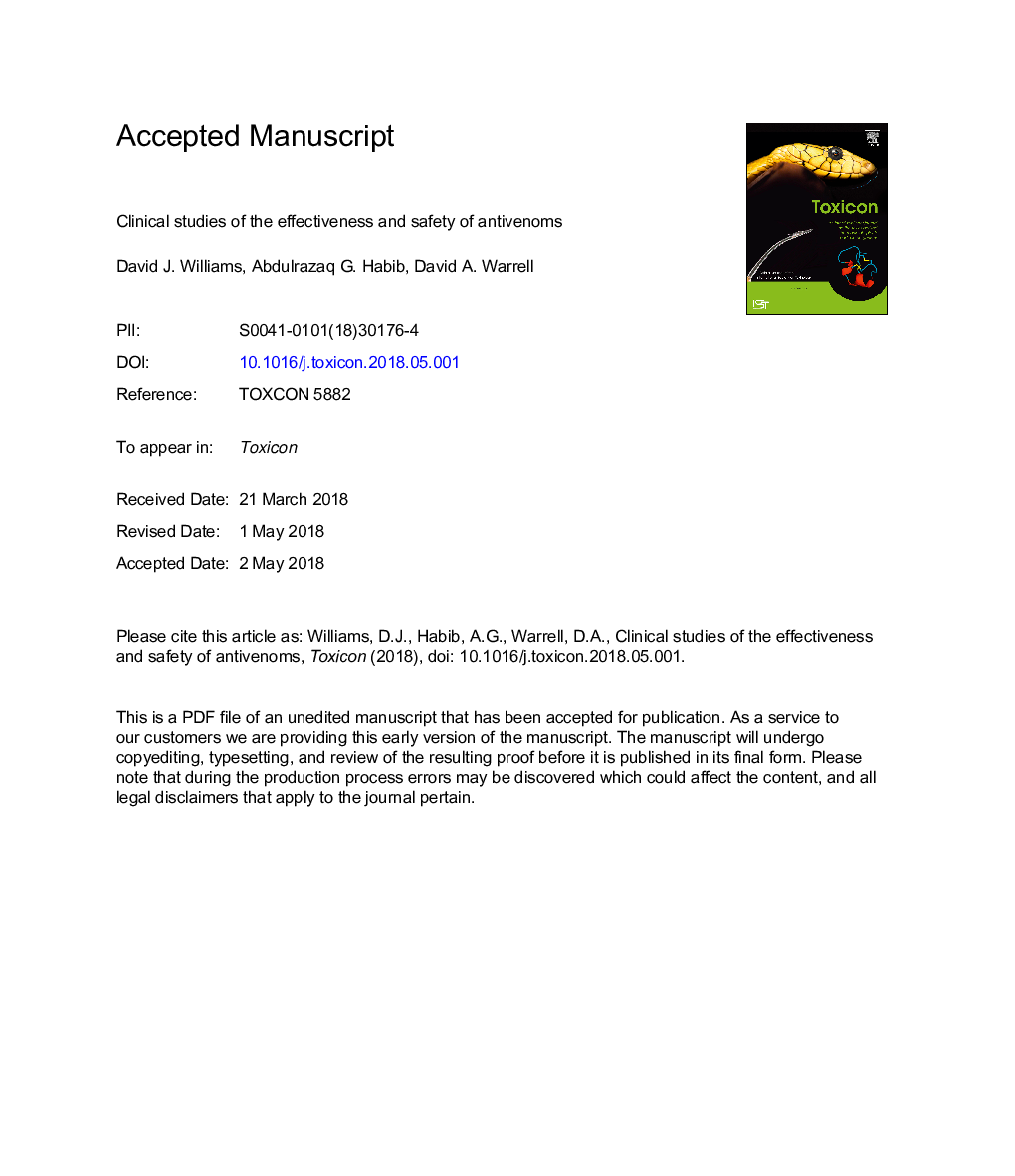| Article ID | Journal | Published Year | Pages | File Type |
|---|---|---|---|---|
| 8394118 | Toxicon | 2018 | 35 Pages |
Abstract
Antivenom trials are most urgently needed in low-to middle-income countries where there are many practical, logistical and funding challenges. Basic requirements for clinical trials include identification of the biting species of snake in every case; the use of objective, clinically-relevant endpoints, such as restoration of blood coagulability; definition of inclusion, exclusion and withdrawal criteria; assurance of antivenom safety; ethical considerations; inclusion of one or more control (comparator) groups; and analysis based on intention to treat. The highest quality evidence comes from Phase II and larger Phase III studies that have been designed as statistically powerful, randomized, controlled trials (RCTs), ideally with blinding of patients and investigators to avoid bias. Because of the challenges to carrying out clinical trials of antivenoms, Phase IV trials (post-marketing surveillance) are potentially more important and useful than for most other drugs.
Keywords
Related Topics
Life Sciences
Biochemistry, Genetics and Molecular Biology
Biochemistry, Genetics and Molecular Biology (General)
Authors
David J. Williams, Abdulrazaq G. Habib, David A. Warrell,
